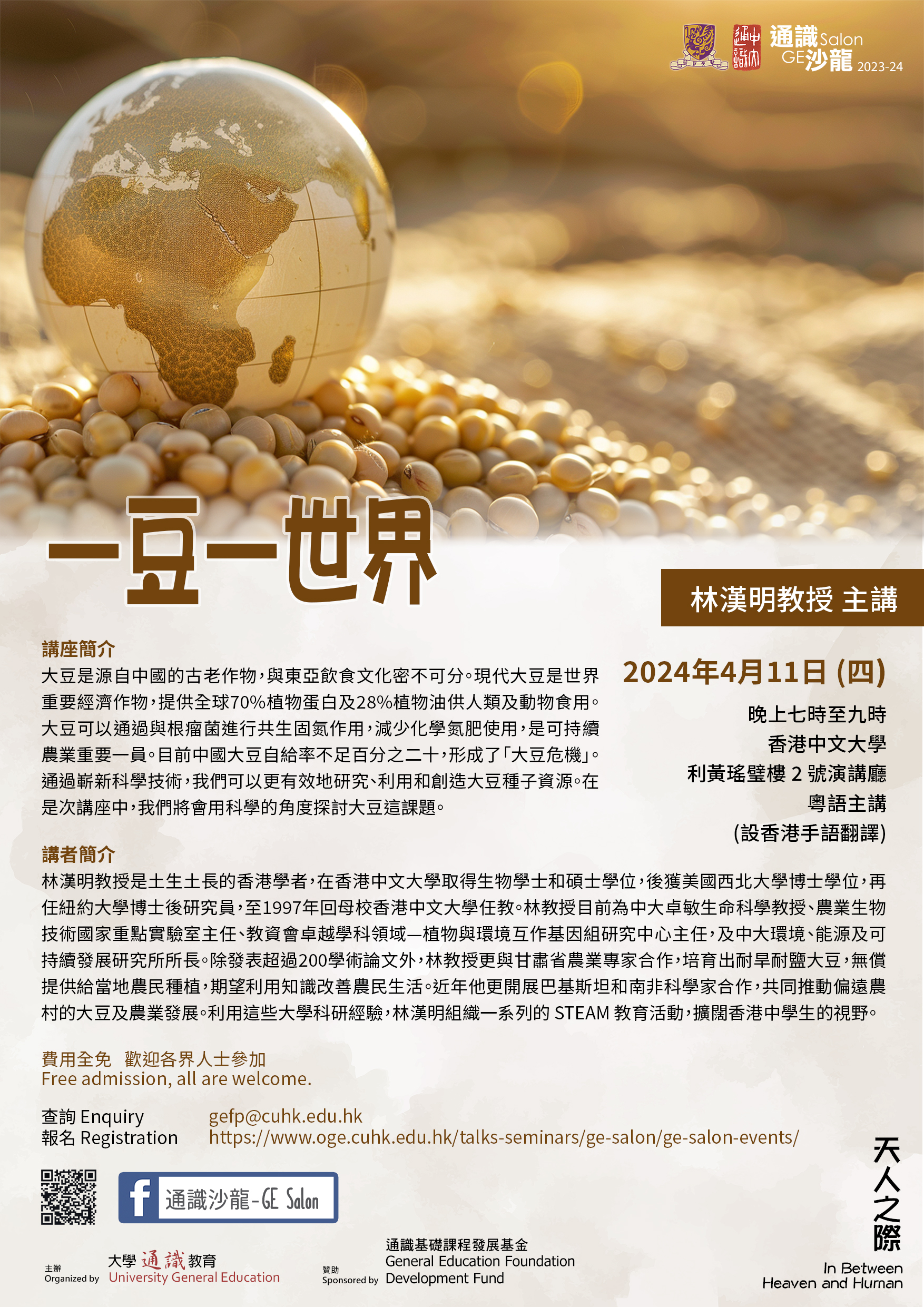GE Salon
The Story of Soybean
Venue: LT2 (G/F), Esther Lee Building, CUHK
Language: In Cantonese (with sign language interpreting)
Speaker: Prof. Hon-Ming Lam
Moderator: Dr. LAI Chi Wai Kevin
Register NowSynopsis
Soybean is an ancient crop that originated from China and has been deeply integrated into the food culture of East Asia. Modern soybean is an important economic crop in the world, providing 70% of global plant protein and 28% of vegetable oil for human and animal consumption. Soybean can reduce the use of chemical nitrogen fertilizers through symbiotic nitrogen fixation with rhizobia and hence is an integral component of sustainable agriculture. In China, more than 80% of the soybean need is dependent on imports, creating the “Soybean Crisis”. Through innovative science and technology, we can research, utilize, and generate soybean seed resources more effectively. In this lecture, we will discuss the topic of soybean from a scientific perspective.
Speaker(s)
Professor Hon-Ming Lam is a native Hong Kong scholar. He obtained his bachelor’s degree and master’s degree in biology from The Chinese University of Hong Kong, and his Ph.D. degree from Northwestern University. He then served as a postdoctoral fellow at New York University before returning to his Alma Mater in 1997. Professor Lam is currently the Choh-Ming Professor of Life Sciences, Director of the State Key Laboratory of Agrobiotechnology, Director of the UGC Area of Excellence-Genomic Research Center for Plant-Environment Interaction, and Director of the Institute of Environment, Energy and Sustainable Development at CUHK. In addition to publishing more than 200 academic papers, through collaboration with Gansu breeders, Prof. Lam developed drought-tolerant and salt-tolerant soybeans, which have been disseminated to farmers in NW China at no cost, hoping to use knowledge to improve farmers’ livelihood. In recent years, he collaborated with scientists in Pakistan and South Africa to promote soybean and agricultural development in remote villages. Using this experience of university research, Prof. Lam organized a series of STEAM education activities to broaden the vision of high school students in Hong Kong.


